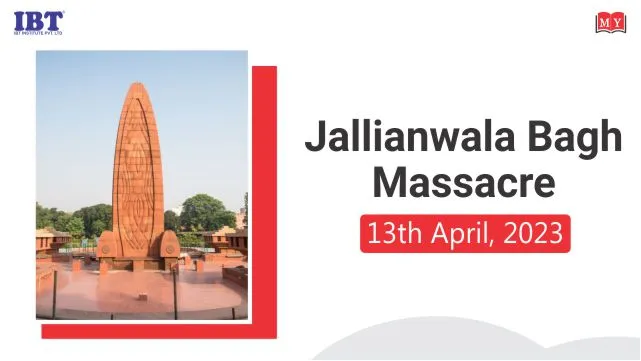
Jallianwala Bagh Massacre : 13th April
The Jallianwala Bagh massacre took place on 13 April 1919, the day when troops of the British Indian Army under the command of Colonel Reginald Dyer openly fired into a crowd of thousands of people, who had gathered in Jallianwala Bagh, Amritsar, Punjab. Hundreds of people were killed in the Massacre which is considered a Dark Day in history.
History:
The Jallianwala Bagh massacre, also known as the Amritsar massacre, took place on 13 April 1919. A large peaceful crowd had gathered at the Jallianwala Bagh in Amritsar, Punjab, British India, to protest against the Rowlatt Act and the arrest of pro-independence activists Saifuddin Kitchlew and Satyapal. In response to the public gathering, the temporary brigadier general, R. E. H. Dyer, surrounded the protesters with his Gurkha, Baloch, Rajput, and Sikh troops from 2-9th Gurkhas, the 54th Sikhs and the 59th Scinde Rifles of the British Indian Army. The Jallianwala Bagh could only be exited on one side, as its other three sides were enclosed by buildings. After blocking the exit with his troops, he ordered them to shoot at the crowd, continuing to fire even as the protestors tried to flee. The troops kept on firing until their ammunition was exhausted. Estimates of those killed vary between 379 and 1,500 or more people and over 1,200 other people were injured of whom 192 were seriously injured.
The massacre caused a re-evaluation by the British Army of its military role against civilians to "minimal force whenever possible", although later British actions during the Mau Mau rebellion in the Kenya Colony have led historian Huw Bennett to comment that the new policy could be put aside. The army was retrained and developed less violent tactics for crowd control. The level of casual brutality, and lack of any accountability, stunned the entire nation, resulting in a wrenching loss of faith of the general Indian public in the intentions of the United Kingdom. The attack was condemned by the Secretary of State for War, Winston Churchill, as "unutterably monstrous", and in the UK House of Commons, debate on 8 July 1920 Members of Parliament voted 247 to 37 against Dyer. The ineffective inquiry, together with the initial accolades for Dyer, fuelled great widespread anger against the British among the Indian populace, leading to the non-cooperation movement of 1920–22. Some historians consider the episode a decisive step toward the end of British rule in India. Britain has never formally apologized for the massacre but expressed "deep regret" in 2019.
 4.5/5
4.5/5








